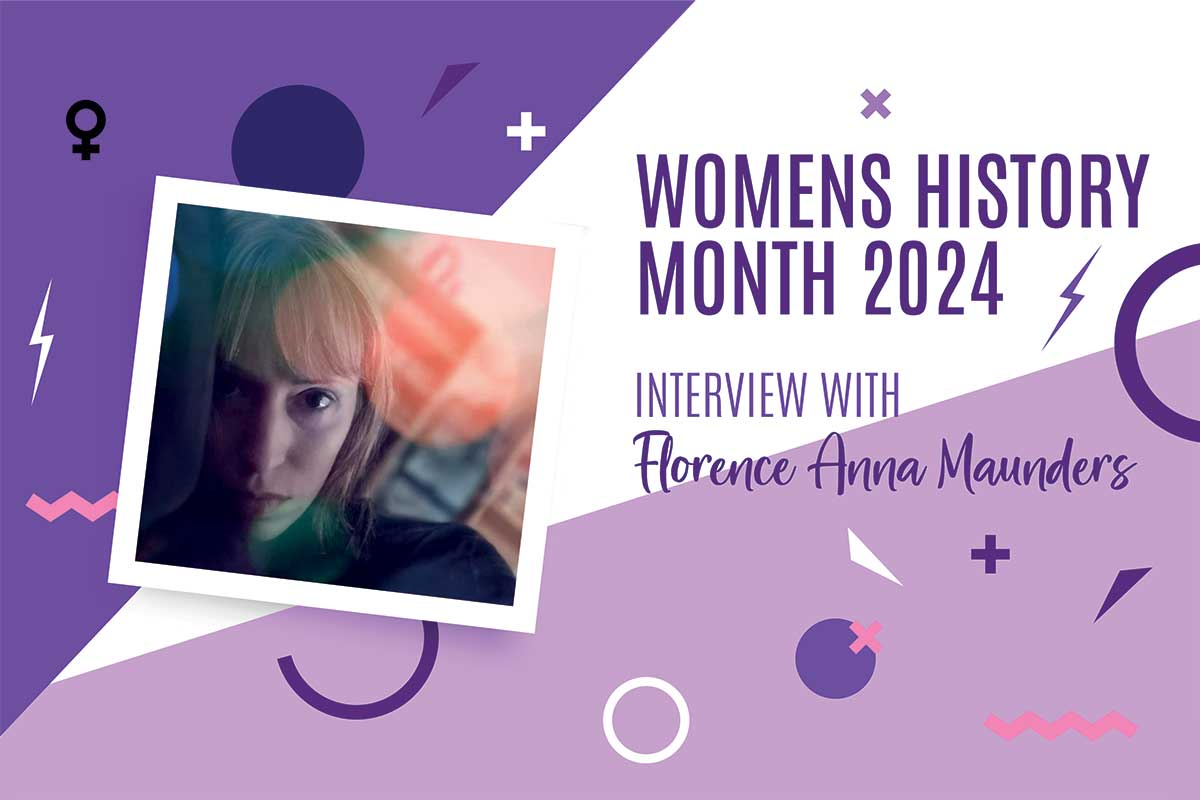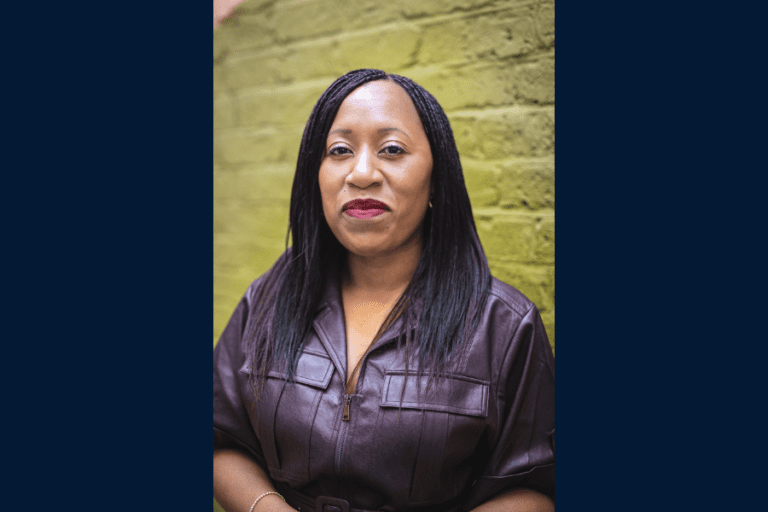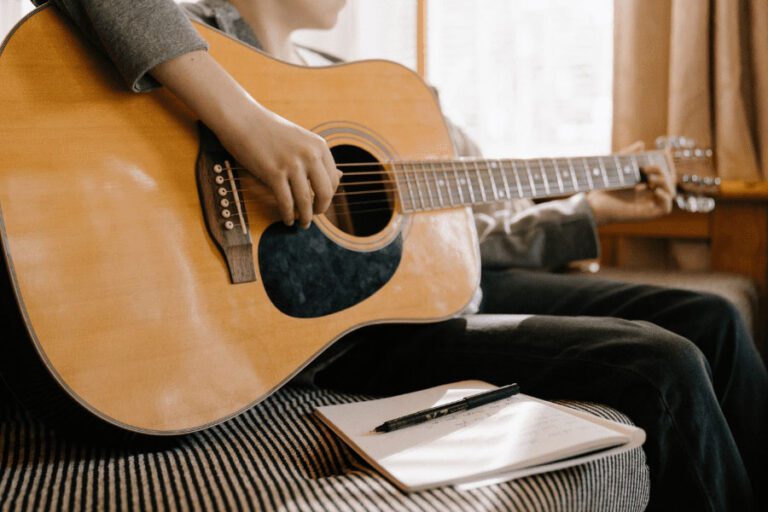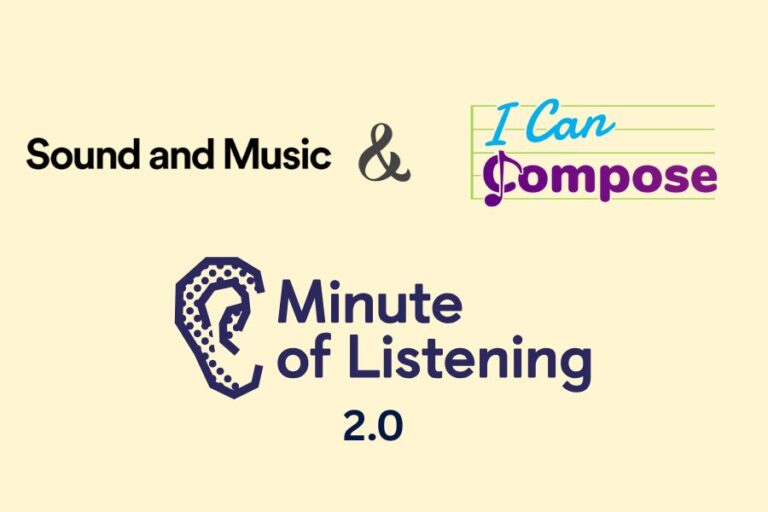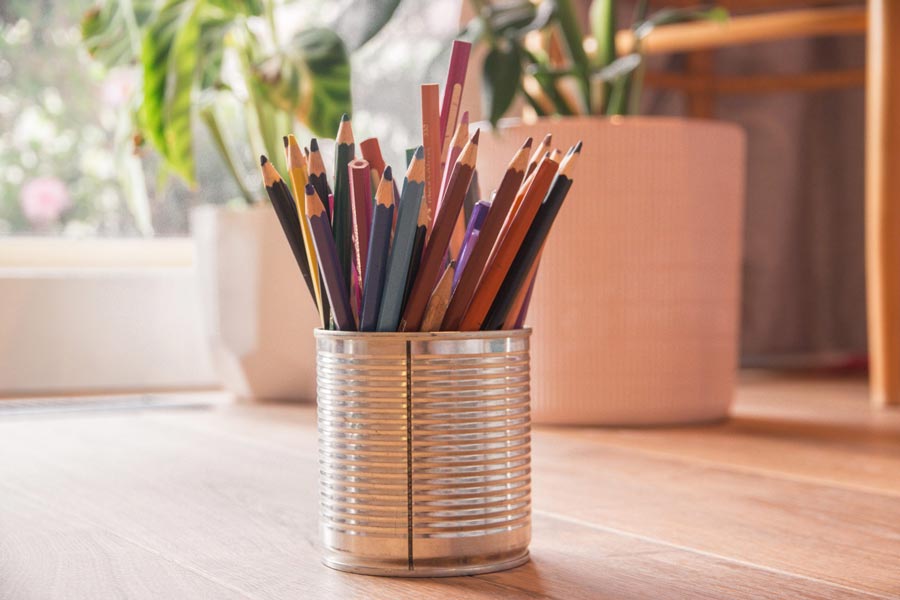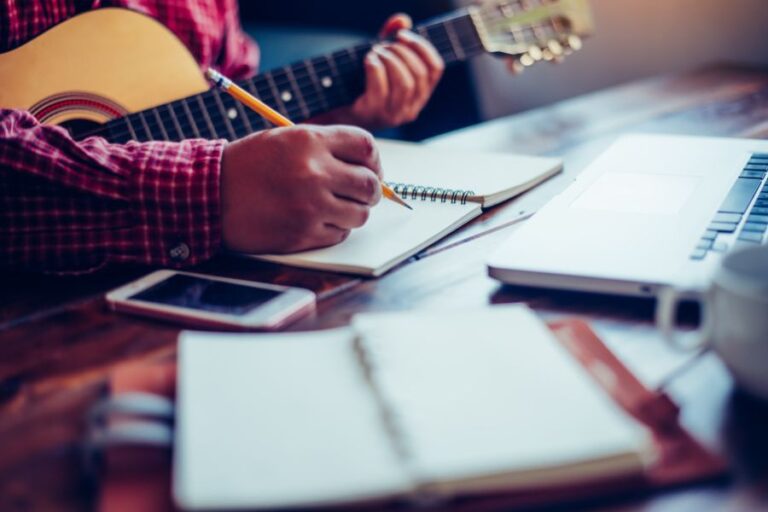Florence Anna Maunders is a multi-international-award-winning composer, conductor, percussionist & jazz pianist. We got chatting about her latest projects (they’re exciting!), composing process and her top tips for aspiring young composers…
Tell us about your musical experience growing up…
I don’t come from an especially musical family, but music was my “Big Thing” as a teenager and my way to meet people, and to access all kinds of educational opportunities that would otherwise not have been available to a working class kid like me. I was very fortunate to be able to access scholarships and support programmes through my musical aptitude, firstly as a chorister, clarinettist and saxophonist, and then later playing the piano, organ, percussion and composing.
How did you get into composing?
I’ve always been interested in doing my own version of the things I enjoy – starting with inventing games and wanting to make my own art and tell my own stories, and this naturally led into wanting to create my own compositions too. As a massive control freak, being able to instruct other musicians how the music needed to go was amazing! I couldn’t tell you when I really started composing, but certainly by the age of 13 or so I was regularly creating new music through notation, computer software, and tape experiments. I think the turning point occurred when I was about 16 or 17 and I discovered that it was possible to take composition as a principal study at a conservatory – that set me onto my undergraduate route immediately!
Do you have a role model or musician you admire?
There’s a huge number of amazing composers and performers who I really admire and look up to – and it’s mindblowing that in the last few years I’ve been able to actually meet some of them in person. It’s really hard to narrow it down to just a couple of names, but I’ve certainly been influenced by the music of Steve Reich, Anna Meredith, Hannah Peel, Frank Zappa, Aphex Twin & Uri Caine to mention a few. I think I just generally love musicians!
Your list of awards is very impressive! How do you nurture your creativity to keep being innovative in your music?
Click here to view a list of Florence Anna’s awards.
Hah! Yes, I have picked up one or two prizes in the last four or five years! It’s a good question. I think creativity is a muscle that gets stronger the more it’s used. The more music I write, the more ideas I seem to have for the next piece(s) – in fact one of my biggest problems as a composer is that I have to finish one piece before I can start working on (what I’m sure will be) the amazing idea I have for the next. I’m constantly taking the opportunities to meet with and work with musicians directly – so much of my music is written for specific individuals or ensembles
What has been your most rewarding commission?
Totally out of the blue, I was asked to write a piece during the second Covid lockdown for the Villiers Quartet, and there was a real opportunity with the piece to do a back-and-forth with the quartet and edit, rewrite and shape the piece collaboratively. I think eventually there were something like six different versions of the piece, but the final recording was absolutely awesome – the quartet totally smashed it and the piece is probably my go-to when someone asks me to “show me something you’ve composed.”
Last year you were selected to be one of eight composers on the RPS composers’ programme – tell us more!
What a dream-come-true! It was amazing to work with the Royal Philharmonic Society. This was much more than a commissioning process, there was a real sense of community between us composers on the scheme, and we were supported through the year with all kinds of super-helpful training. I got to work with my ensemble – the awesome Kyan Quartet, over an extended period at the Wigmore Hall, so the whole process was really collaborative from the start, and I had some mentoring from the incredible Tansy Davis which helped so much to pull the whole piece together.
How do you get started on a new composition – what’s your process?
I often have the whole composition planned out mentally before I start to write anything down. I tend to be composing in my head all the time – driving the car, lying in bed, eating dinner etc. and then it’s a case of sketching out the ideas, hopefully getting some players to look at them and then assembling all the pieces like a massive Lego set.
You recently took part in the ABRSM composer mentor programme – what did that involve?
This was a great mentoring scheme for anyone involved in music education like myself. As well as the chance to write some material for ABRSM’s famous graded exam syllabuses, I also was able to work with one of their partner organisations, the National Youth Jazz Orchestra, who are just phenomenal, and we’ve established quite a good relationship from that, leading to me writing and arranging for them three more times already.
What is your proudest musical moment?
Difficult question. I’ve struggled for years with my own value and worth as a composer and musician – I stopped composing for over a decade shortly after graduating, and I can’t perform piano in public any more without getting the absolute WORST shakes. I suppose I’m most proud of the fact that I’ve come back to composing and stuck it out this time enough to get pieces finished, pieces performed, pieces that I’m pleased with. It’s not so much one particular moment or singular achievement that I’m proud of, but that perseverance in coming back from the deepest compositional pit.
And finally, what are your 3 top tips for any aspiring composers?
Firstly, listen to all the music you can. Composing is like breathing out, and you need to breathe in too. Listen to music, play music, look at scores, talk to musicians, work with musicians, immerse yourself in music. Don’t try to work in a vacuum, but take inspiration from hearing all the sounds that everyone else is making too.
Secondly, don’t be in a hurry in your pieces to always be doing something new, something different. If you’ve written a passage or a chord or a melody or whatever that sounds decent, then use it again! If you’re pleased with it, do you really want to just hear it once? Build a piece around that moment.
Thirdly, take the time to put in the extra detail. The overall sound of whatever you write is just the sum of hundreds of tiny details. There’s a lot more to composing than just deciding what notes to play when! Okay, that bit’s fairly important, but think of the great performers – they’re not great just because they play all the notes correctly – there’s something else, some reflection of their own humanity that comes through in performance – aim to do that in your writing too.
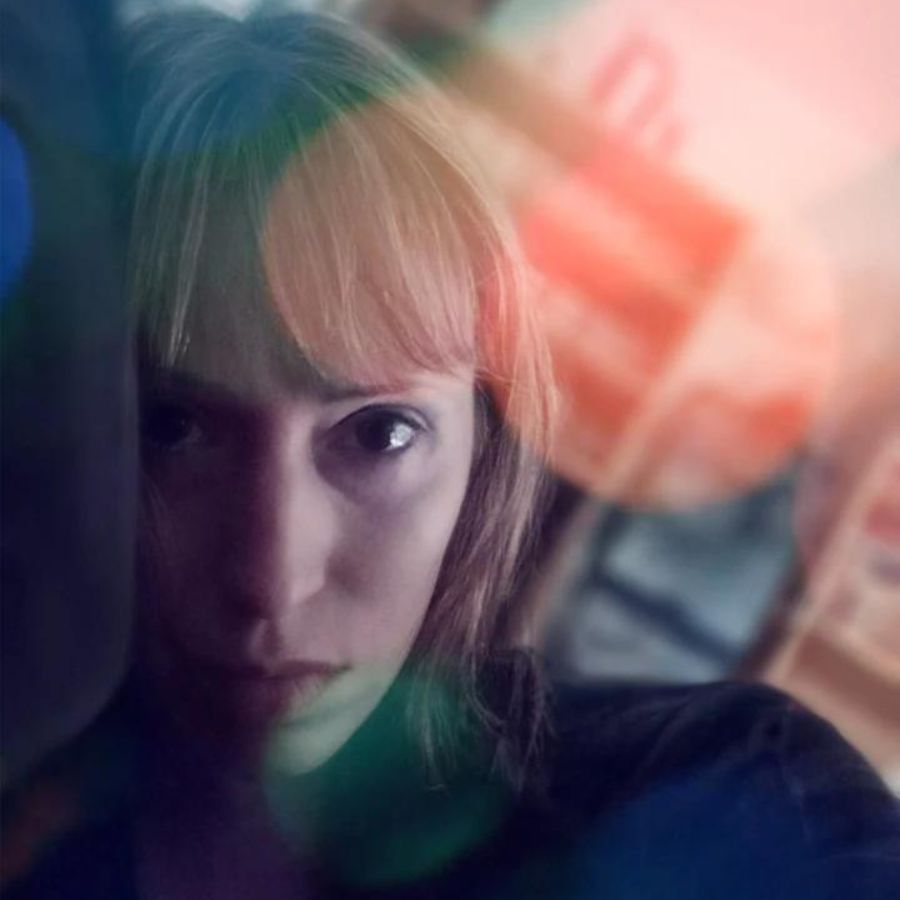
About Florence Anna Maunders
Florence Anna Maunders started to compose music when she was a teenager, and her early tape-based pieces from this time reveal an early fascination with the unusual juxtapositions of sounds and collisions of styles which have been a hallmark of her music-making ever since. This is perhaps a reflection of the music which interested and excited her from a very young age – medieval dance music, prog-rock, electronic minimalism, bebop jazz, Eastern folk music, the music of Stravinsky & Messiaen, and the grand orchestral tradition of the European concert hall. Flori started out young, as a chorister, clarinetist and saxophone player, but following an undergraduate degree at the Royal Northern College of Music, where she studied with Anthony Gilbert, Adam Gorb, Simon Holt & Clark Rundell, she’s enjoyed a mixed and international career as a jazz pianist, orchestral percussionist, vocalist arranger, electronic music producer and teacher. Since 2018 she’s had a bit of a radical transformation of her self and her career, and returned to composition as a main artistic focus, winning a series of awards & competitions, and with her music performed across the UK, Europe, the USA and the rest of the world – performances and collaborations with leading ensembles, orchestras and soloists.
Twitter X: @FlorMaunders
Website: https://www.florencemaunders.com/
